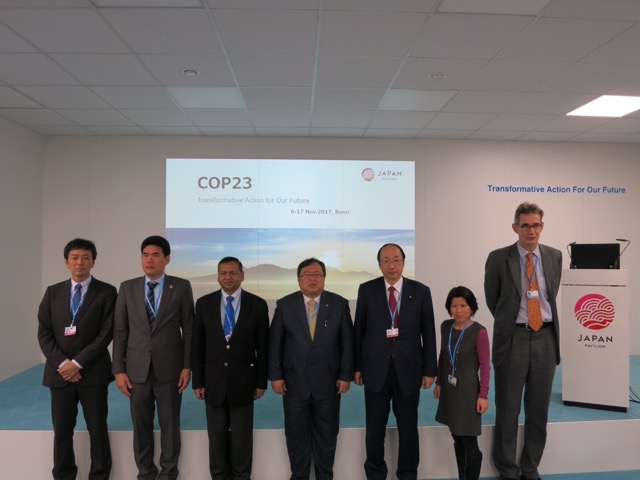
10:00 - 11:30
| Theme | Building up scientific knowledge to enhance the effectiveness and efficiency of adaptation planning and its action |
|---|---|
| Summary | To achieve the global goal on adaptation of enhancing adaptive capacity, building resilience and reducing vulnerability to climate change in each region and country, strengthening scientific knowledge on climate change and its dissemination definitely take important role. Since the adaptation measure should be considered by all with local, subnational, national, regional and international dimensions, it is essential that adaptation action should be guided by best available scientific knowledge overarching different sectors with due considerate at local contexts. Ministry of Environment, Japan (MOEJ) established “Climate Change Adaptation Platform (A-PLAT)” in August 2016 which aims to provide national/prefectural climate change risk information in cooperation with relevant ministries and agencies in Japan. Those scientific knowledge contributes for adaptation planning and its implementation by local government as well as introduction of adaptation countermeasure by business sectors and citizen. And now, MOEJ is under preparation to expand its function over Asian and Pacific Region as “Asia-Pacific Adaptation Information Platform (AP-PLAT)” by 2020. How can we connect these climate change risk information with adaptation planning and realize its implementation in both national and local level? How can we proceed to build up the scientific data in the structure and provide them? We will have active discussion on these challenges and opportunities with inviting both state and non-state actors in this side event. |
| Agenda | <Opening Remarks> H.E. Mr. Masaharu Nakagawa, Minister of the Environment, Japan <Keynote Speech> H.E. Mr. Bambang Brodjonegoro, Minister of BAPPENAS, Indonesia <Panel Discussion> Panelist:
Moderator:
|
| Organiser / Co-organiser |
|
Building up scientific knowledge to enhance the effectiveness and efficiency of adaptation planning and its action
< Opening Remarks >
< Keynote Speech >
Panel discussion:
<Moderator>
<Panelist>
The side-event has discussed the role of scientific knowledge to accelerate planning and implementation of climate adaptation.
Following high-level remarks by Ministers of MOEJ and BAPPENAS, Indonesia, panel discussion was held. The key message from the panelists were as follow.
NIES, Japan: Introduced status of Asia-Pacific Adaptation Information Platform (AP-PLAT) including climate impact viewer and other functions to enable policy makers and practioners to plan and take climate adaptation action.
Thailand, MONRE: NAP has been about to be finalized under Master Plan of Thailand. Nearly 2,000 thousands climate adaptation case studies have been collected and analyzed with a view to contribute to the NAP process. In near future, MONRE has a plan to establish climate data management centre and so that AP-PLAT can be good basis of set up the centre at national level.
ADB: Close collaboration with science community that can be applied for investment analysis on technical assistance, evaluation of adequacy. Three major suggestions towards AP-PLA; 1, process-wise to reflect ongoing and/or existing other mechanisms such as NWP activities in order to strengthen its own unique comparative advantages. 2, User-friendly interface, 3, Develop the platform time-by-time rather than wait until 2020.
UNEP: Several ongoing activities can be collaborative with AP-PLAT, such as Lima Adaptation Knowledge Initiative (LAKI), City-University Linkage, Global Adaptation Network (GAN) and Global Centre of Excellence on Adaptation (GCECA). Furthermore, under UNFCCC climate negotiation process, metrics and methodologies to capture the effectiveness of adaptation to risk of climate change are essential elements for rule book of Paris Agreement, where AP-PLAT could be fed into.
Takeshi Abe, Ministry of the Environment, Japan

Copyright Ministry of the Environment Government of Japan. All rights reserved